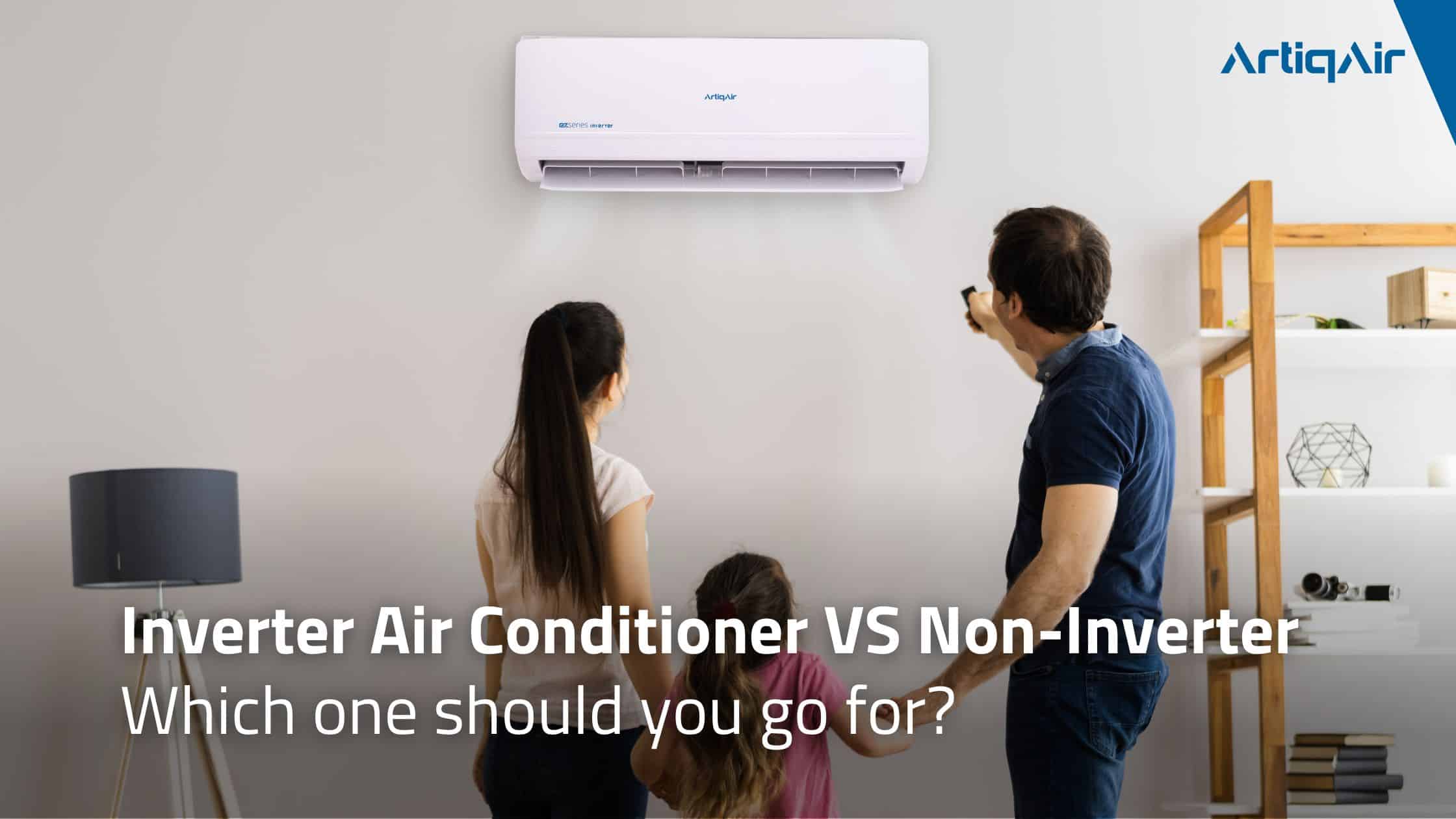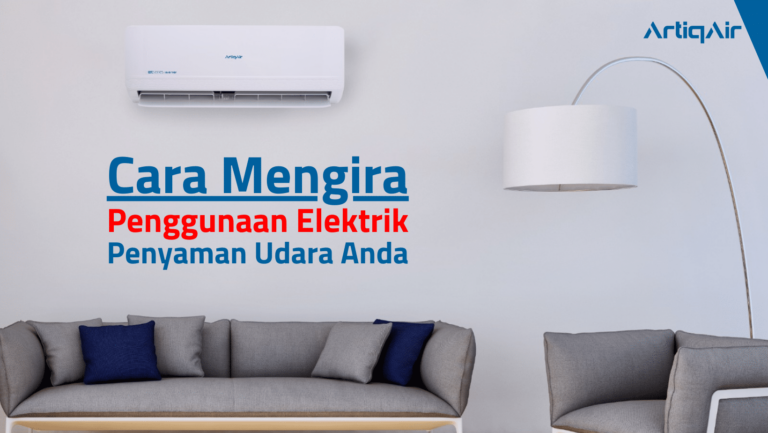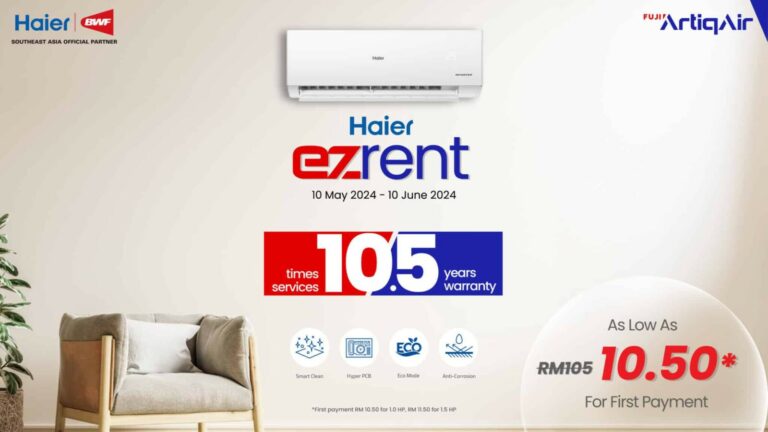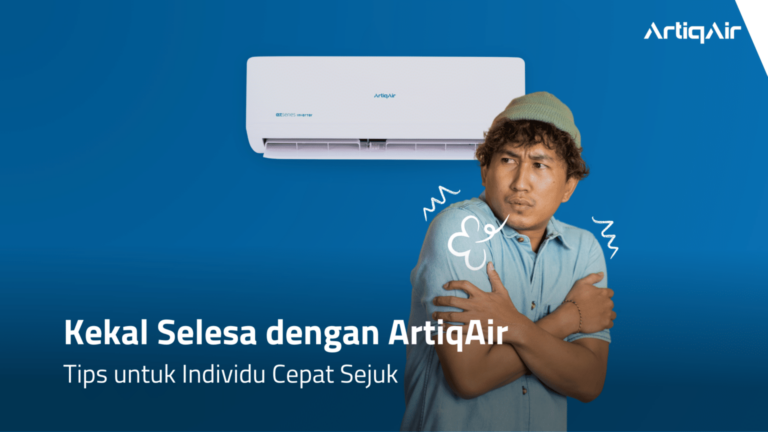
Inverter Air Conditioner VS Non-Inverter: Which one should you go for?
Learn the difference between Inverter and Non-Inverter air conditioners. With ArtiqAir, you can enjoy optimal comfort in your home!
Learn the difference between Inverter and Non-Inverter air conditioners. With ArtiqAir, you can enjoy optimal comfort in your home!
Inverter Air Conditioners and Non-Inverter Air Conditioners are both types of cooling systems commonly used for maintaining comfortable indoor temperatures. However, they differ in terms of their technology, energy efficiency, and overall performance. Here’s a breakdown of the key differences between the two:
So, which should I choose; Inverter Air Conditioner or Non-Inverter Air Conditioner?
Technology
4-Bintang
Utilises advanced technology that allows the compressor, which is the main component responsible for cooling the air, to operate at variable speeds. This means that the compressor adjusts its speed based on the cooling demand, rather than just running at full speed or being turned off.
Non-Inverter
Known as a fixed-speed or conventional air conditioner, operates using a compressor that runs at a fixed speed. When the desired temperature is reached, the compressor turns off, and when the temperature rises, it turns back on at full speed.
Energy Efficiency
4-Bintang
Inverter technology allows the compressor to adjust its speed according to the cooling requirements of the space. It can operate at lower speeds when the cooling load is lower, which results in reduced energy consumption. This leads to better energy efficiency and lower electricity bills compared to non-inverter models.
Non-Inverter
It has a simple on-off cycle. The compressor either runs at full speed or is completely off. This can lead to higher energy consumption as the compressor frequently switches on and off to maintain the desired temperature.
Cooling Performance
4-Bintang
Inverter technology enables smoother and more precise control of the cooling process. The ability to adjust compressor speed ensures that the desired temperature is maintained consistently without drastic fluctuations. This results in more comfortable and stable indoor conditions.
Non-Inverter
Non-inverter models can experience temperature fluctuations because the compressor turns on and off abruptly. This can lead to less consistent cooling performance and potential discomfort.
Initial Cost
4-Bintang
In general, this type of air conditioners tend to be more expensive upfront compared to non-inverter models due to the advanced technology they incorporate.
Non-Inverter
Non-Inverter Air Conditioners are typically more affordable in terms of initial purchase cost.
Long-Term Savings
4-Bintang
Despite their higher initial cost, this air conditioner offer long-term savings through energy efficiency, as they consume less electricity to maintain the desired temperature, leading to reduced utility bills.
Non-Inverter
While non-inverter models are cheaper upfront, their higher energy consumption can result in higher operating costs over the lifespan of the unit.
All in All
In summary, ArtiqAir also is generally more energy-efficient, offer better temperature control, and provide long-term savings compared to Non-Inverter Air Conditioners. Non-inverter models may be more budget-friendly initially, but they can be less efficient and provide less consistent cooling performance. When making a choice between the two, it’s important to consider your budget, long-term energy costs, and the level of comfort you desire. To know more about these types of air conditioners, feel free to hit this up.
For more information about ArtiqAir air conditioner, click here!




